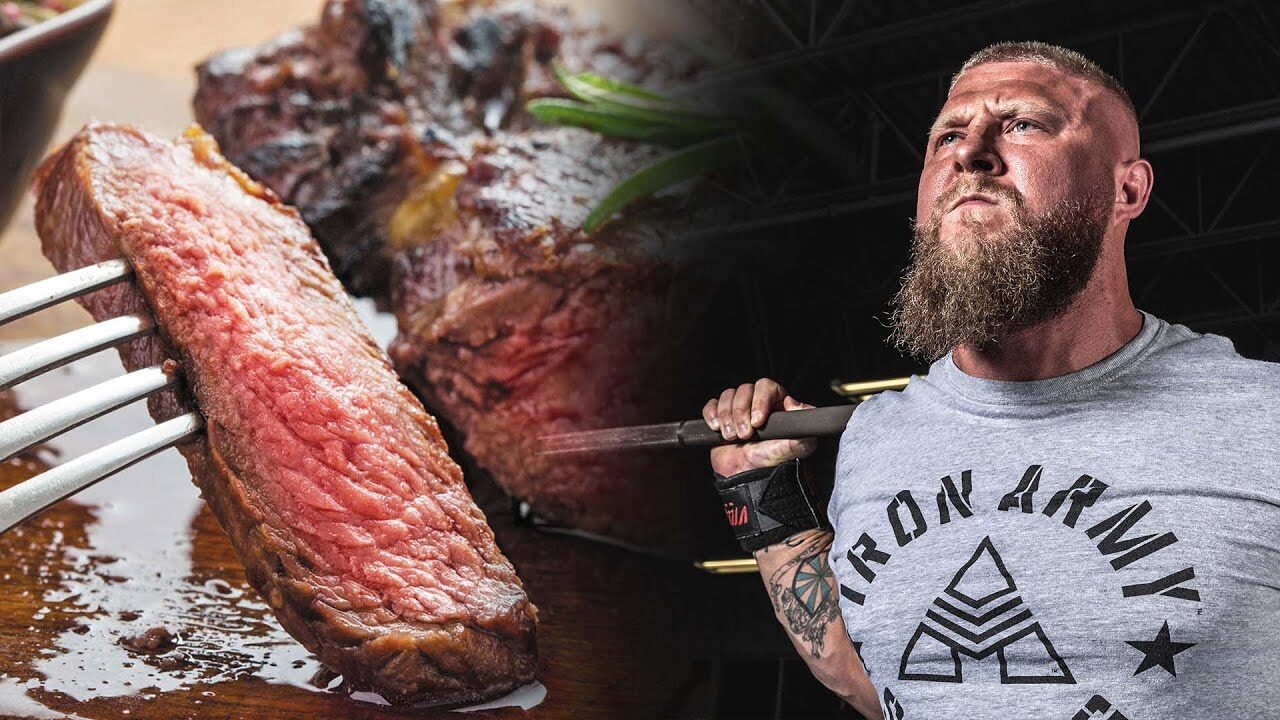- Nutrition
Elite MMA Nutrition Guidelines for Combat Sport Athletes
- By Phil Daru
- On February 24, 2021
Every day, somebody asks me: “Hey coach, what should I be doing about my MMA nutrition?”
Now, I’m no nutrition expert, but the short answer is: it depends. It depends on your height, weight, age, training frequency, training volume, and your specific goals.
The long answer is, if you want to eat for MMA performance, there are five factors you need to consider. These five factors are – caloric intake, macronutrient ratio, meal timing, meal frequency, and food selection.
And, in short, if you dial these factors in, you can expect:
- Surging energy levels
- Supercharged performance
- Increased muscle size
- More gas in the tank for workouts
- Strength and power increases
- Fat loss (depending on your goals)
And a lot more.
Below, I’m going to expand on each of the factors so you can get an idea of how to optimize each of them so that you can implement them into your nutrition plan.
Additionally, if you want a 12-week custom nutrition plan from a true expert, click here.
Let’s jump into the meat:
MMA Nutrition Guideline #1: Caloric Intake
Caloric intake is the foundation of nutrition for elite MMA performance. If you’re off the mark when it comes to your caloric intake, the whole structure comes tumbling down. Because if you’re consuming the wrong amount of calories, you’re either experiencing steeping low energy levels and muscle weakness, or you’re accumulating fat and maybe feeling sluggish.
Either way, the first thing you need to dial-in is your caloric intake.
The first number you need to uncover is your caloric maintenance. Your caloric maintenance is the amount of calories you need to consume to maintain your weight. Again, this is dependent upon many factors, like your height, weight, age, activity level, and much more.
As a rule of thumb, you can calculate your maintenance by taking your bodyweight and multiplying it by 14, 15, 16, or 17. The second number is based on your activity level. The higher the number, the higher your activity level.
Now, this number won’t be exact. In order to get your EXACT caloric intake, weigh yourself daily and manipulate your caloric intake appropriately. If you’re gaining weight, take in less calories. If you’re losing weight, take in more.
Once you find your caloric intake, you can adjust it based on your goals. If you want to gain size, take in more calories. If you want to lose weight, take in less.
MMA Nutrition Guideline #2: Macronutrient Ratio
The next domino that needs to fall is your macronutrient ratio. Your macronutrient ratio is the ratio of proteins, fats, and carbs that make up your caloric intake. Your macronutrient ratio is different based on your goals. For example, if you’re cutting, your protein should be higher so you retain as much muscle as possible. While you’re bulking, your carbs should be higher to provide more energy for your workouts.
However, in general, most experts say you should stay between 1 to 1.2 grams of protein per pound of bodyweight, 2 to 2.5 grams of carbs per pound of bodyweight, and .5 to 1 gram of fats per pound of bodyweight.
This is an ideal ratio for maintenance.
MMA Nutrition Guideline #3: Meal Timing
Most people don’t know this, but in order to make the most out of your protein intake, it’s absolutely critical that you space out your meals.
Why?
While the body can absorb nearly 300 grams of protein, it can only use about one-tenth of that. So, it’s important that you space out your meals in order to maximize protein utility.
What’s the best meal timing?
The research varies, but anywhere from 2-3 hours is good.
Another factor to consider is your workouts. You want to time your meals so that they support your workouts, not hinder them. That means you’ll probably want a small meal that’s packed with simple carbs about 30 minutes to an hour before your workout to maximize energy… Versus eating a fatty, protein-heavy meal that will make you sluggish
MMA Nutrition Guideline #4: Meal Volume
Meal volume goes hand in hand with meal timing. I already alluded to the fact that it’s better to have smaller, spaced out meals than one to three big meals. This is beneficial to muscle size, recovery, and energy levels.
How do you feel when you have a big heavy meal?
Probably tired and sluggish.
How would you feel with a smaller, lighter meal?
Probably more energized and ready to go.
My recommendation is 4-5 smaller, spaced out meals a day.
MMA Nutrition Guideline #5: Food Selection
The final consideration when it comes to nutrition for MMA performance is food selection. And again, this goes hand in hand with your meal timing.
In general, you probably want all of your meals to consist of the same macronutrient ratio. This could change, however, when it comes to meals before and after training/competition.
Before a training session, you’ll want something small that consists of simple carbs that are rapidly turned into energy. Same goes for pre-competition.
After competition and training, you’ll want something light in fat, heavier in protein, and a good amount of simple and complex carbs to restore your glycogen stores that depleted during your training.
In addition, you should choose foods that agree with your body. There’s no use in consuming loaves of bread and milk in a last-ditch attempt to hit your macros if it wreaks havoc on your stomach or gives you room-clearing gas.
Choose foods that your body agrees with.
Nutrition Advice From An Expert
If you want to take things a step further and get nutrition advice from an expert, I have something for you.
One of my friends has been around the MMA community for years.
He’s worked with some of the best to ever do it, including Rampage Jackson, Michael Bisping, Vitor Belfort, Ronda Rousey, and more. He was also awarded MMA Trainer of The Year at the World MMA awards multiple time.
I’m talking about Mike Dolce.
And he’s offered to give Daru Strong Members access to 12-weeks of custom nutrition for a half-off discount.
Expert nutrition has never been this affordable.
And if you’re serious about your performance, I highly recommend you take up his offer.
This deal is only valid for a limited time, and only at the link below.
Get 12-Weeks of Custom Nutrition, Grocery Lists, Custom Recipes, and More for Half-Off>>>
Conclusion
Nutrition for MMA performance is simple. Simple, but not easy. If you execute on the factors I laid out above, construct a solid plan, and stick to it, it should work for you. If it doesn’t, you messed up somewhere and probably need extra help.
That said, nutrition is absolutely CRITICAL for MMA performance. Maybe more so than training. So, if you’re not getting a handle on your nutrition, you’re either not serious, or you just didn’t know. And if you didn’t know, now you do.
Get after it.


